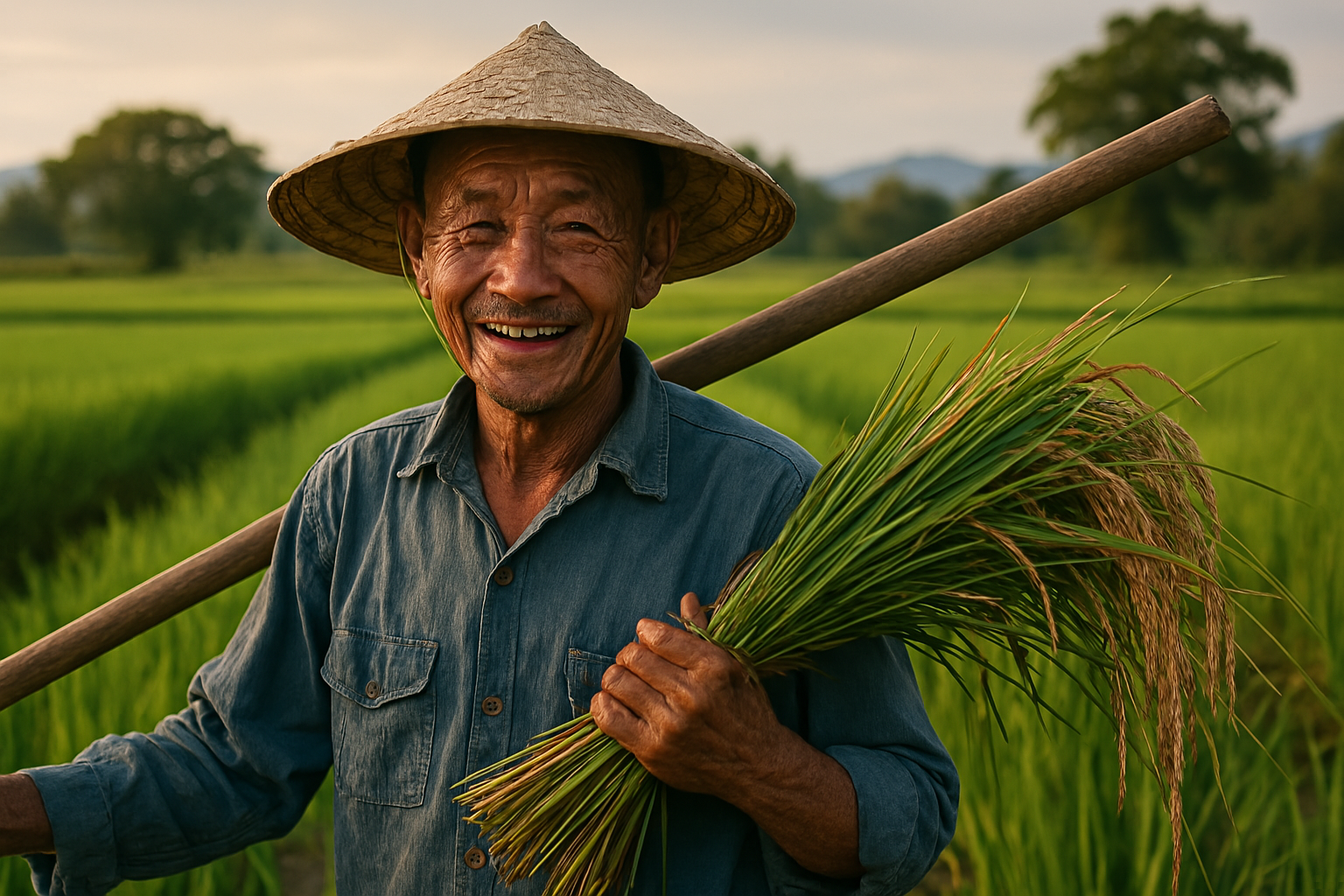IFAD and China Partner to Invest US$235 Million for Green Agriculture in Hunan
The HuSFID is a collaboration between IFAD, the Chinese government, private sector enterprises, and local farmers, with each contributing to the project’s total cost.

The International Fund for Agricultural Development (IFAD) and the Government of China have officially signed an agreement to invest US$235.2 million into the Hunan Specialized Forestry Industry Development Project (HuSFID). This ambitious initiative, aimed at enhancing the livelihoods of smallholder farmers in China, will directly benefit 128,000 individuals over the next six years in the Hunan province. The project seeks to improve agricultural practices while supporting climate resilience and promoting sustainable growth in one of China’s most disaster-prone regions.
The HuSFID is a collaboration between IFAD, the Chinese government, private sector enterprises, and local farmers, with each contributing to the project’s total cost. The breakdown of funding includes an IFAD loan of US$80 million, complemented by US$155.2 million in contributions from the government, private enterprises, and project participants. The project will prioritize green agricultural investments, focusing on market access, environmental sustainability, and climate resilience. These investments aim to foster enterprise-driven growth, integrating smallholder farmers into high-value agricultural supply chains.
Nii Quaye-Kumah, IFAD’s Representative in China, highlighted the strategic importance of the project in supporting China’s broader rural revitalization efforts. “This investment in Hunan not only helps address local poverty but also strengthens climate resilience by promoting sustainable farming practices,” he said. “By empowering smallholder farmers and enhancing environmental sustainability, the project will have lasting economic and ecological impacts.”
Despite China's remarkable economic growth, including the eradication of extreme poverty in 2020, significant challenges remain. According to recent data, 24.7% of the population, primarily residing in rural areas, still lives below the upper-middle-income poverty threshold of US$6.85 per day. The economic disparity between urban and rural areas continues to be a pressing issue, compounded by the adverse effects of climate change. Extreme weather events, including heavy rainfall, floods, and freezing temperatures, have disrupted the livelihoods of rural communities in Hunan, further exacerbating poverty and food insecurity.
To address these issues, the HuSFID will focus on three key agricultural value chains: bamboo, tea seed oil (Camellia oleifera), and medicinal herbs. These sectors have significant potential to integrate smallholder farmers into the broader economy while promoting sustainable agricultural practices. Bamboo, for example, is a resilient crop that can adapt to varying environmental conditions, making it ideal for regions affected by climate change. Similarly, tea seed oil and medicinal herbs have growing demand in both local and international markets, offering smallholder farmers lucrative opportunities.
The program will emphasize climate-smart agriculture, ensuring that farmers adopt practices that not only boost productivity but also mitigate the negative impacts of climate change. This includes introducing sustainable land management practices, diversifying crops, and improving water management systems. In addition to environmental sustainability, the project will focus on empowering vulnerable groups, including women, youth, and ethnic minorities. It will promote entrepreneurship and employment in these communities, offering training and support to help them succeed in these emerging value chains.
The HuSFID is strategically aligned with IFAD’s new Country Strategic Opportunities Programme (COSOP) for 2025-2030, which emphasizes rural revitalization and green development. The project complements China’s Rural Revitalization Strategy, adopted in 2017, which seeks to narrow the income gap between urban and rural areas and build sustainable, prosperous rural communities. This long-term strategy envisions a greener economy and a more equitable society by 2050, with a focus on sustainable development and climate resilience.
Hunan Province, where the project is based, is known for its rich agroforestry heritage. Forestry currently accounts for nearly 11% of the province's GDP. However, the region is also one of the most disaster-prone in China, frequently experiencing extreme weather events that threaten both the economy and the livelihoods of local populations. The recent floods, snowstorms, and other extreme events in 2024 highlighted the urgent need for climate-resilient agricultural practices that can safeguard the livelihoods of rural farmers.
The Hunan Specialized Forestry Industry Development Project will integrate smallholder farmers into these agricultural value chains, empowering them to become part of the larger agricultural economy while also improving the overall resilience of the region. The inclusion of bamboo, tea seed oil, and medicinal herbs is expected to diversify income sources for farmers, thereby reducing their vulnerability to environmental risks and market fluctuations.
Since its entry into China in 1981, IFAD has been a key player in transforming rural communities and empowering smallholder farmers across the country. As the first international financial institution to invest in China, IFAD has funded 35 projects, totaling US$3.45 billion, of which US$1.314 billion has come from IFAD itself. These efforts have directly benefited approximately 4.65 million households, with projects targeting sustainable agriculture, rural infrastructure, and climate resilience.
The HuSFID stands as a major milestone in this ongoing effort, marking another significant step in IFAD’s partnership with China to address rural poverty, promote sustainable development, and build climate resilience. As China works toward its goal of reaching peak carbon emissions by 2030 and achieving carbon neutrality by 2060, projects like the HuSFID will be instrumental in shaping a greener and more sustainable future for rural communities across the country.










